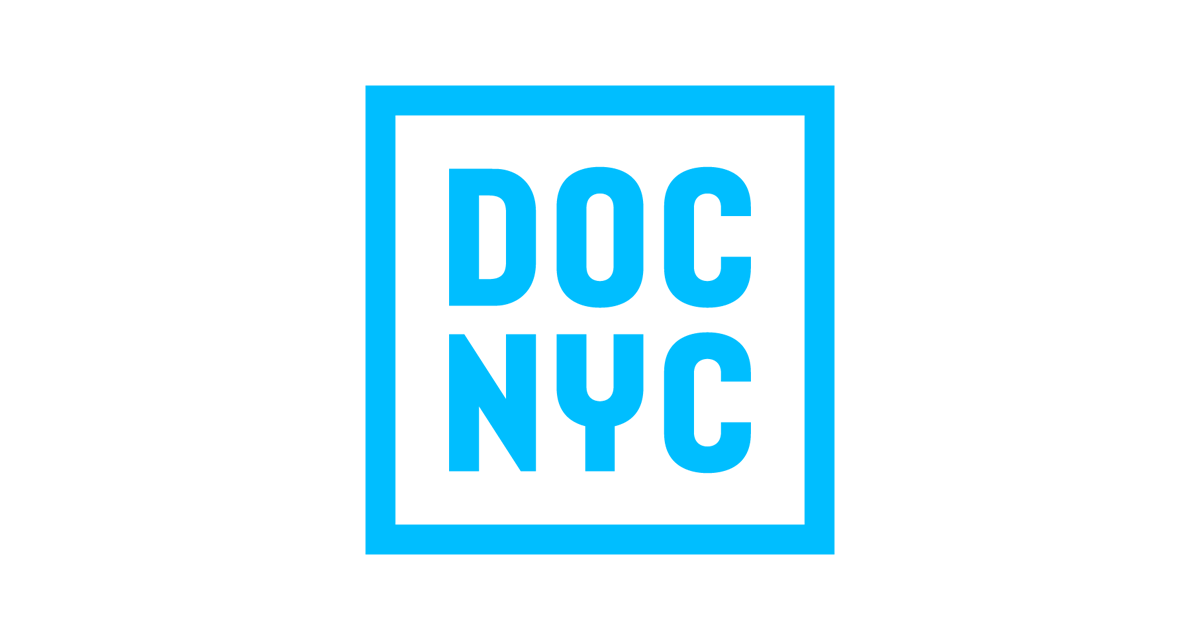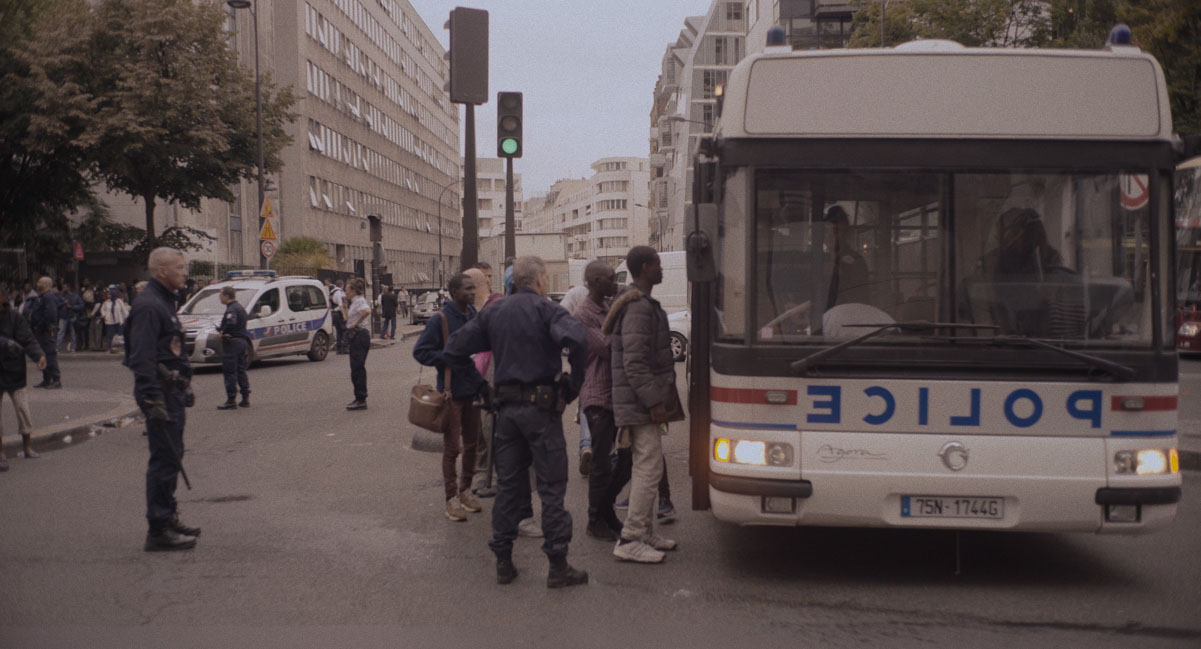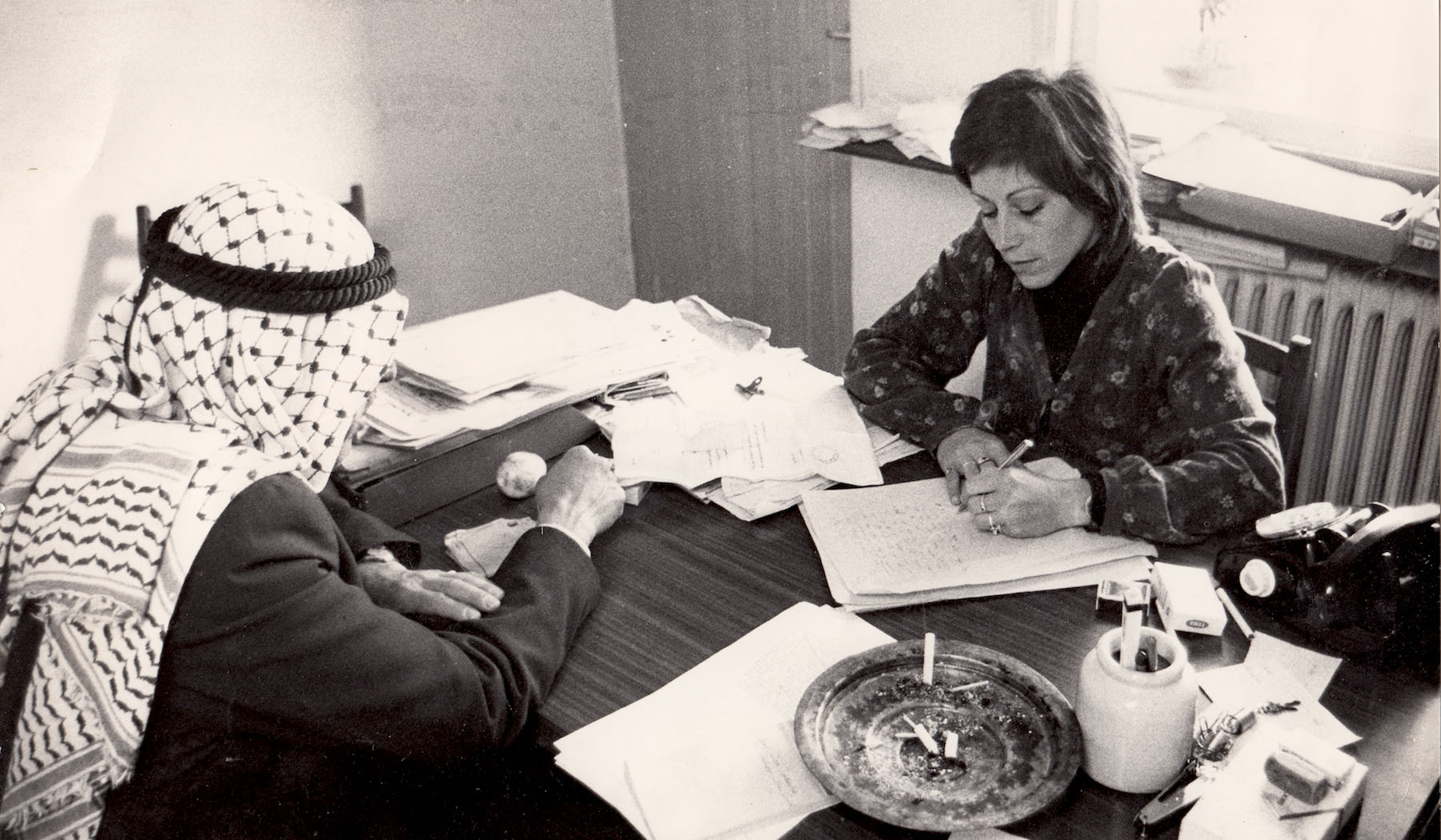|
|
||
|
Pro Tools
FILMFESTIVALS | 24/7 world wide coverageWelcome ! Enjoy the best of both worlds: Film & Festival News, exploring the best of the film festivals community. Launched in 1995, relentlessly connecting films to festivals, documenting and promoting festivals worldwide. Working on an upgrade soon. For collaboration, editorial contributions, or publicity, please send us an email here. User login |
New York, DOC NYC 2019
2019 marked the tenth anniversary of DOC NYC. The festival has retained its prominent position as America’s largest documentary film festival. At the IFC Center, the SVA Theatre, and Cinepolis Chelsea, DOC NYC presented more than 300 screenings and events from November 6-15. The program included numerous panels and seminars as well as social events. DOC NYC PRO provided eight full days of training that covered virtually all aspects of documentary film making and included design, funding, production, distribution, legal issues, and other essential knowledge areas for aspiring documentary film makers. DOC NYC 2019 had 28 world, 27 US and 59 NYC premieres. The festival was dedicated to D.A. Pennebaker, a long-term DOC NYC participant who passed this summer. 136 feature length documentaries were presented with numerous new films by established filmmakers like Barbara Kopple and Joe Berliner, as well as others new to the field. More than 500 documentary filmmakers and media professionals attended to discuss their films and offer observations in numerous panels. Among the special guests at the festival were Martin Scorcese, Katie Couric, Michael Moore, and Dr. Ruth Westheimer. As Basil Tsiokos, the director of programming observed “Our 10th anniversary lineup reflects a more international scope than in previous years, drawing compelling stories from all over the world, in addition to a rich selection of American nonfiction” As I noted last year, there is a continuing growth in the production of feature films and documentaries. The expansion and creation of streaming services and the growing role they play in funding these films and participating in festivals and related professional events has become a strong driving force. Documentaries are readily accessible on streaming services, helping to expand their audience. Netflix is now involved in sponsoring at least three film festivals. It serves as the leadership sponsor of the 2019 DOC NYC festival and had eight of its productions selected for the festival, including the acclaimed American Factory, BIKRAM, The Great Hack, and the Brazilian Edge of Democracy. Netflix will also enhance exposure to foreign productions given its heavy financially investments in local original language programs, specifically in India. Sundance received 14,259 submissions in 2019, of which 6,500 were long or short form documentaries. 15,100 have already been submitted for 2020. Of those 3,853 are feature films and a greater number of documentaries. DOC NYC received 2,000 submissions in 2018 and 2,200 in 2019. A study of the documentary audience carried out in 2018 for the Canadian Hot Docs festival confirms strong audience support for documentary productions. Though viewership of documentaries in theaters is shrinking, that decline is more than compensated by the growth of viewership on streaming services. The research shows that 72% of documentary viewers screen docs at least twice a month, and 55 % watch more documentaries now than three years ago. . DOC NYC 2019 was backed by the Leadership Sponsor Netflix. A&E Indie Films, HBO Documentary Films, HHistory Films and Kanopy were Major Sponsors. New York and WNET New York Public Media served as Leading Media Sponsors and National Geographic Documentary Films, Showtime Documentary Films, and topic were Supporting Sponsors. In addition, there were 7 Signature Sponsors, 14 Event Sponsors, and 10 Friends of The Festival acknowledged in the program.
Paris Stalingrad, Hind Meddeb /Thim Naccacheh, 2019, France For the upscale tourist vacationing in Paris this documentary opens a persuasive introduction into the lives of harassed and frequently persecuted African and middle eastern refugees in Paris. Throughout the Paris cityscape and transportation system we come across refugees from the Near East and Africa. The film shows us what tourists are oblivious to, the African, Muslim, and displaced peoples that live, eat, and sleep on the streets. They are faced with xenophobic resentment and periodic violence. With her Algerian background and cultural skills, Hind Meddab gains the trust of a few refugees and shares their odysseys coming to France, and their hopes for passage to Great Britain. Hind captures their ongoing battles with the French immigration system that grants permits to only 10% of those requesting to stay in France, leaving the others to stagnate in violation of the law and fear of arrest. Filmed during the summer of 2016, Paris- Stalingrad captures a period when refugees were forced from their destroyed Calais camp to look for shelter in an area near the Gare du Nord railway station. They built under the bridges and on or near the streets with whatever material was at hand. Police raids with sanitation crews periodically destroyed these hand-made shelters to prevent any modicum of stability or solidary of community among the refugees. Forced from the streets, refugees were placed into overcrowded detention camps in Paris or dispersed into suburban and distant regions. Many refugees who had come from Calais to Paris after being forced out of what came to be knows as their Calais ”jungle” camp had to leave Pairs and other major metropolitan areas. Beginning in 2017, authorities began sending refugees that failed to obtain papers back to their home countries. The film provides an extraordinary insight into the experience of refugees surviving in France, accented with poetry and music. The film also expresses that neither France nor the other members of the European Union have any long-term plans for solving the refugee crisis.
Breakthroughs in the biological field have generated procedures like CRISPR, a gene editing technology that allows for the modification of the human DNA and other living beings. Developed in biology labs by Japanese researchers in 1987, CRISPR was not widely discussed publicly until 2015 when its potential for impacting our genetic heritage nature was suddenly debated. Human Nature directed by Adam Bolt is the first comprehensive documentary which presents CRISPR and its applications. Traditional genetic engineering is restricted to the cells the DNA is derived from. However, CRISPR can be used to edit sperm or embryo cells. Also called germline editing, changes are passed on to all descendants. Adam Bolt masters the complex problem of genetic engineering with the help of acknowledged experts who in most cases communicate using ordinary language avoiding scientific jargon.. What Aldous Huxley predicted 1932 in Brave New World has now become a plausible reality 80 years later. Using CRISPR scientists could, from a theoretical and research perspective, delete or add a DNA fragment and embed the change in the human DNA. Chinese scientists have already made the claim that they have deleted a gene fragment which permits HIV transmissions. Once removed, the disease is stopped. China has become a world leader in the synthetic biology sector and the Chinese BGI corporation introduced in 2018 the world’s’ fastest genome sequencer. From a health science perspective, this procedure could have a tremendous impact. Selecting or adding genetic material leading to individuals with an extraordinary gift for mathematic, music, strength or any other human attributes such as size, immunity to pain, a high I.Q. or needing no sleep may no longer be science fiction. A world in which politicians and the wealthy taking advantage of new gene editing technologies is rapidly approaching. DOC NYC 2019’s New World Order section with four outstanding documentaries depicts fundamental interrelated problems faced in the contemporary world. The rise of authoritarian and military countries, the failure to cope with large immigrant populations trying to enter the West, the conservative reorientation of the legal process , and the unparalleled growth of socio-economic inequality as driven by the merger of political of power and wealth.
Capital in the Twenty-First Century by Justin Pemberton is a didactic masterpiece which uses Thomas Piketty’s 2013 exegesis on the rise of capitalism driven by a theoretical understanding of history and backed by a solid collection of data to elucidate the painful reality of growing class discrepancies. In virtually all modern societies, capital has become more concentrated and the proportion of the population owning most of the productive and financial wealth has become more concentrated. Pemberton succeeds in illustrating this development using archival files, film, and television coverage that is reinforced by expert commentators like Joseph Stieglitz and Francis Fukyama. The complex and difficult argument by Piketty is based on a close historical and empirical reading of the trends of hyper capitalism permeating society beginning in the 1970s. This trend has been accompanied by the eclipse of the welfare state and the decline of corporate and upscale income tax rates. Pemberton skillfully translates this information into a comprehensive framework of oral and visual interpretation. Juxtaposition of imagery throughout the ages, creative editing of archival material from past and present times, and of the spoken sword provide the contextual understanding for several hundred years of economic advancements. There were periodic interruptions in the rise of turbocapitalism into the neo-liberal paradise embraced by Margret Thatcher and her American presidential followers, but unmitigated reliance on the free market have resulted into a decline of the democratic ethos, reduction of economic growth rates, and short-sighted populism. For Piketty and Pemberton, possible answers to the problem are an active role of the state, the re-distribution of wealth through taxation and other means, the re-organization of the international financial order to tax where profits are earned rather than where they sheltered, and transformative policies for legal systems losing independence due to the influence of wealth translated into legislation.
The documentary ADVOCATE by Rachel Leah Jones and Phillipe Bellaiche from 2019 places the problems Palestinians face in the Israeli judicial system into plain view. From the perspective of the advocate, the Jewish Israeli lawyer Lea Tsemel, and her Palestinian colleagues, the filmmakers show the near impossibility for Palestinian alleged offenders to obtain justice and objective balanced treatment in the Israeli court system. There seems to be two legal systems, one for Israeli Jews and another for Palestinians. If found guilty, Palestinians face higher prison terms compared to Israeli Jews for the same offense as a result of the application of different sentencing policies which are not spelled out legally. In her practice, Lea Tsemel has never won a case other than an Israeli Supreme Court decision in 1999. As she puts it “I can live with the illusion that I can have an impact”. The supreme court decision outlawed the torture of alleged Palestinian terrorists by the secret service, but this apparently firm ruling was subsequently circumvented by the secret service, according to testimony in the documentary by a former official. A segregated system of justice frequently stacks the odds against Palestinians and is rarely covered by the press. To date about 800,000 Palestinians, 20% of the Arab and Palestinian population, have at one point in their life been incarcerated. In those groups, few families are left without at least one family member having been subject to legal proceedings that not only criminalized them but also left them with psychological trauma. In a case handled by Lea Tsemel and covered in the documentary, a 13-year-old boy was been implicated in a knife attack, yet is tried by public opinion, in the media, and in the court tried as an adult terrorist suspected of attempted murder. His interrogation does not provide any evidence of harmful intent, just the desire to scare people with the knife. He was imprisoned despite Israeli laws precluding prison for offenders less than 14 years old. The boy is found guilty and convicted to a prison term of 12 years, although the term is reduced at a subsequent appeal. Palestinians are considered by many increasingly conservative Israelis as inferior human beings prone to violence and terrorism and as fanatics threatening Israel’s security. The invocation of the threat to security is a mantra determining many Israeli foreign and domestic policies. Advocate has been nominated for numerous awards in the international film festival circuit and has received 12 to date. When it won the award as the best Israeli film at the Israel Docaviv film festival Israel’s Culture Minister Miri Regev and right-wing organizations attacked the selection of the documentary and its portrait of Lea Tsemel’s work as undermining Israel’s existence and supporting terrorism.
Program Structure of the 2019 DOC NYC festival Listing of Program Sections Specification (number of films shown)
Special Events Opening Night, Closing, Centerpiece and Visionaries Tribute Lifetime Achievement (5 productions screened) Viewfinders Competition Distinct Directorial Visions (6) Metropolis Competition New York Stories (7) Masters Films by Nonfiction Auteurs (6) American Perspectives Explore the USA (8) International Perspectives Travel the World (8) Investigations Revealing Real-Life Tales (8) Portraits Profiles of Singular Individuals (8) Modern Families Films Abut Unconventional Families (6) New World Order On Today’s Most Urgent Issues (4) In The System Inside Looks at Institutions & Systems (7) Fight the Powers Stories of Activism (8) Green Screens Films About the Environment (6) Food for Thought Culinary Stories (3) Art & Design Profiles of Artists, Photographers & Designers (10) Behind the Scenes Films About Film (3) Sonic Cinema Movies About Music (8) Winner’s Circle International Award Winners (7). A new section to highlight films which have won major festival awards from international festivals around the world Short List: Features Award Winning Films (15) Feature films picked by programmers because of outstanding reviews by critics, distributors, and the audience Short List: Shorts 12 doc shorts selected as likely contenders for leading awards Shorts Programs Topical Short Film Screenings (72) concise short-form content DOC NYC U Student Short Film Screenings (36) from NYC based film/doc schools, each from 3 to 38min in length
Claus Mueller filmexchange@gmail.com
23.12.2019 | Claus Mueller's blog Cat. : Advocat Advocate Palestinians in Israel Capital in the 21st century CRISPR Documentary market Dominance of Wealth Expelling Migrants in France genetic engineering Lea Tsemel Palestinians & Legal Rights in Israel Paris Stalingrad rance migrants in Paris
|
LinksThe Bulletin Board > The Bulletin Board Blog Following News Interview with EFM (Berlin) Director
Interview with IFTA Chairman (AFM)
Interview with Cannes Marche du Film Director
Filmfestivals.com dailies live coverage from > Live from India
Useful links for the indies: > Big files transfer
+ SUBSCRIBE to the weekly Newsletter Deals+ Special offers and discounts from filmfestivals.com Selected fun offers
> Bonus Casino
About Claus MuellerThe EditorUser contributions |




























